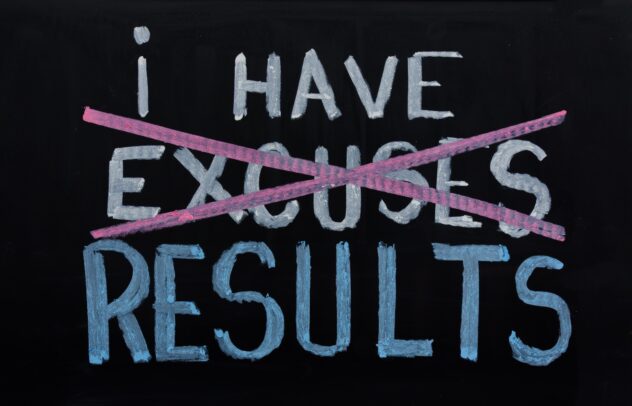
Neurodivergent Relationships: Can They Work?
Relationships are like fingers, because no two are alike. But throw neurodivergence into the mix, and you’ve got a recipe for something truly unique (and maybe a bit chaotic). Whether both partners are neurodivergent or one is neurotypical, the dynamics of neurodivergent relationships bring their own set of challenges, quirks, and surprising joys.
So, can neurodivergent relationships work? Spoiler alert: Absolutely, but you might need a few extra sticky notes, some noise-cancelling headphones, and a lot of laughter. Let’s dive into the wonderful, complex world of neurodivergent relationships and explore how they thrive.
Neurodivergent Meets Neurodivergent: Double the Quirks, Double the Fun?
When two neurodivergent individuals come together, it can feel like a match made in uniquely wired heaven; or, on occasion, like two high-speed trains sharing one track.
Unlock peak brain performance with science-backed biohacks. Join free now & get your guide for just £4.99 (45% off)!

The Pros:
- Empathy Overdrive: Shared neurodivergent traits mean a deeper understanding of each other’s quirks, sensory needs, and unique ways of processing the world. One partner’s sensory overload is the other’s cue to grab the weighted blanket.
- Creative Problem-Solving: Neurodivergent brains excel at thinking outside the box. Together, you might solve problems in ways that would make Einstein jealous.
- Authenticity Rules: Forget small talk; conversations dive straight into hyperfixations, niche interests, and the kind of honesty that’s refreshingly real.
The Challenges:
- Executive Function Overload: If both partners struggle with planning or organisation, even simple tasks like paying bills can feel like a sitcom episode gone wrong.
- Clashing Needs: One partner might love loud music while the other needs silence. Cue the ongoing battle of the volume knob.
Neurodivergent Meets Neurotypical: Two Worlds, One Dance
When one partner is neurodivergent and the other is neurotypical, it’s not so much worlds colliding as it is two worlds learning to dance.
The Pros:
- Complementary Strengths: A neurotypical partner might bring structure and routine, while the neurodivergent partner adds creativity and fresh perspectives.
- Learning Opportunities: Neurotypical partners learn the beauty of hyper fixation and creativity, while neurodivergent partners might pick up tips on navigating social norms.
The Challenges:
- Communication Gaps: Misunderstandings can arise if neurotypical partners misinterpret behaviour, like thinking “hyper-focus” means disinterest.
- Patience Required: Both partners need patience to navigate differences. Bright lights in the supermarket might overwhelm one, while the other thrives in chaotic environments.
Making Neurodivergent Relationships Work
No matter the dynamic, neurodivergent relationships can flourish with understanding, humour, and a bit of effort.
1. Understand Yourself
No two people are the same—yes, even if they share the same diagnosis. ADHD or autism can each feel like a puzzle, with every piece unique to you. Figure out how your own neurodivergence manifests—maybe you’re rearranging books at 2 a.m. or cringing at flickering lights—so you can actually communicate those needs. It’s like an internal treasure hunt: find your triggers, your superpowers, and your “nope, not today” list. Once you know yourself, you’re already halfway to helping your partner understand you, too.
2. Communication: Because Mind Reading’s Not a Thing
Open and honest communication is the foundation of any strong relationship, but it’s even more crucial in neurodivergent relationships. Whether it’s through memes, texts, or carefully worded sticky notes, make your needs and feelings clear. And remember: never assume, always ask. This simple “policy” can save both of you from a world of misunderstandings.
3. Understanding: Where the Magic Happens
If communication is the act of speaking and listening, understanding is the glue that holds it all together. It’s not just about hearing words; it’s about empathy, active listening, and genuinely wanting to see the world through your partner’s lens. Put yourself in their shoes (hopefully they’re comfy ones), ask clarifying questions, and focus on the intention behind their words. Remember: you have two ears and just one mouth for a reason. Use them accordingly to build bridges instead of roadblocks.
4. Conflict Resolution
Disagreements happen—even in the best relationships, let alone ones featuring two different brain wiring systems. The trick? Assume the best intentions before jumping to conclusions. Ask questions like, “Did you mean it that way, or am I misinterpreting?” This can save a meltdown faster than you can say “executive dysfunction.” Defensiveness is the poison of understanding; it stops you from hearing the other person. So, swap defensiveness for curiosity, dig into what your partner’s feeling, and remember that working together against the problem (rather than against each other) keeps your bond stronger than any difference of opinion.
5. Celebrate Differences
Find joy in each other’s quirks. One partner loves organising their sock drawer by colour? Fantastic. The other collects rocks from every beach? Build a rock tower together.
6. Set Boundaries
Healthy boundaries can make all the difference. Whether it’s agreeing on “quiet hours” or having designated time for individual hobbies, respect each other’s space.
7. Seek Support When Needed
Therapy isn’t just for emergencies—it’s a great tool for navigating the complexities of neurodivergent relationships. Plus, a therapist might have better advice than “just buy more sticky notes.”
The Bottom Line on Neurodivergent Relationships
Can neurodivergent relationships work? Absolutely. Like any relationship, they’re built on understanding, compromise, and a willingness to grow together. Whether you’re navigating life with two ADHD brains, one autistic and one neurotypical, or any other combination, the key is to create a partnership that works for both of you.
Love isn’t about fitting into a box—it’s about building a box that fits you both. Preferably one with cushions, noise-cancelling walls, and maybe a snack drawer.
Join Our Community
Looking to connect with others navigating neurodivergent relationships? Join our community at Herbal Biohacker for tips, support, and stories from people just like you. Let’s thrive together!






